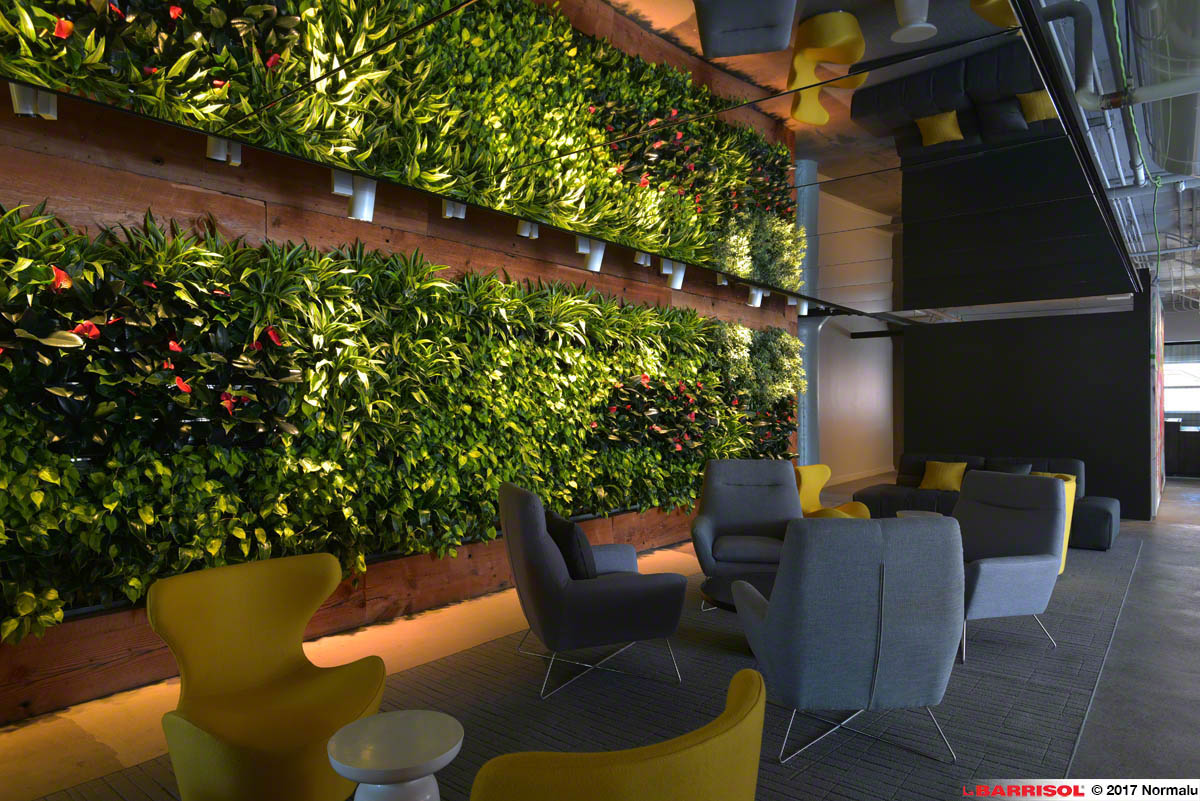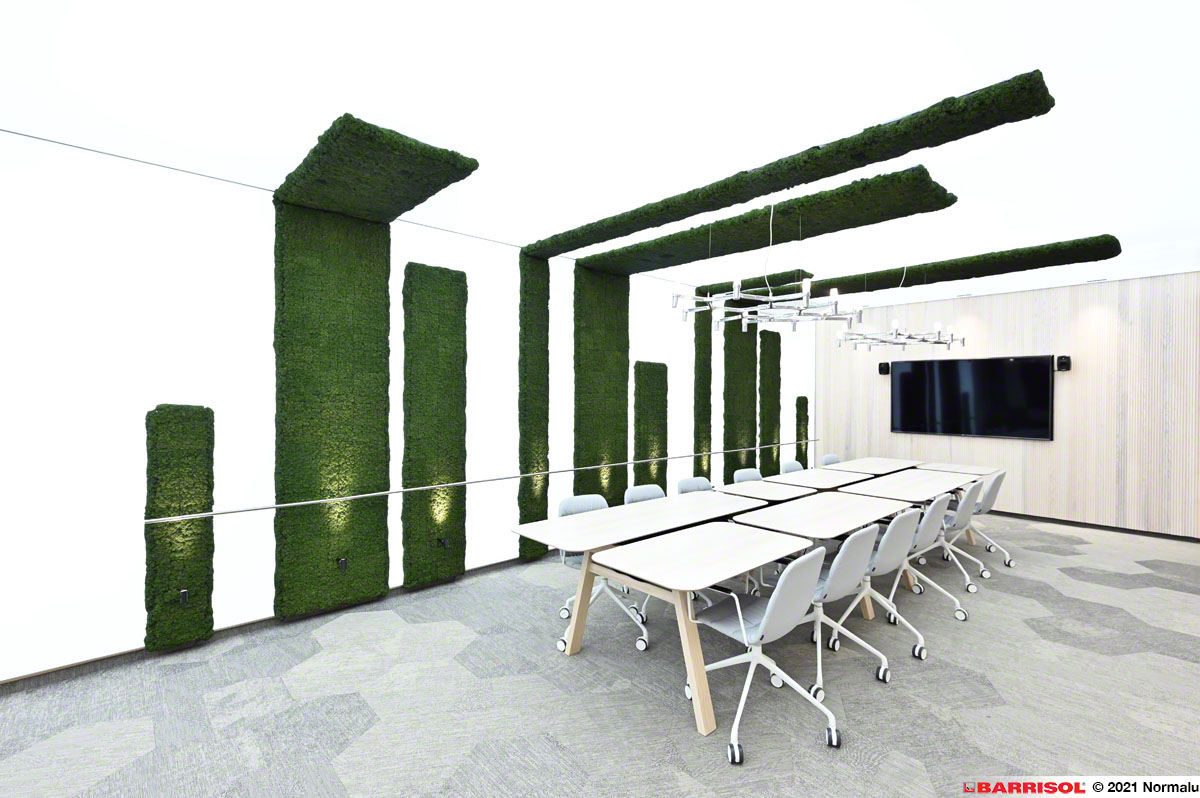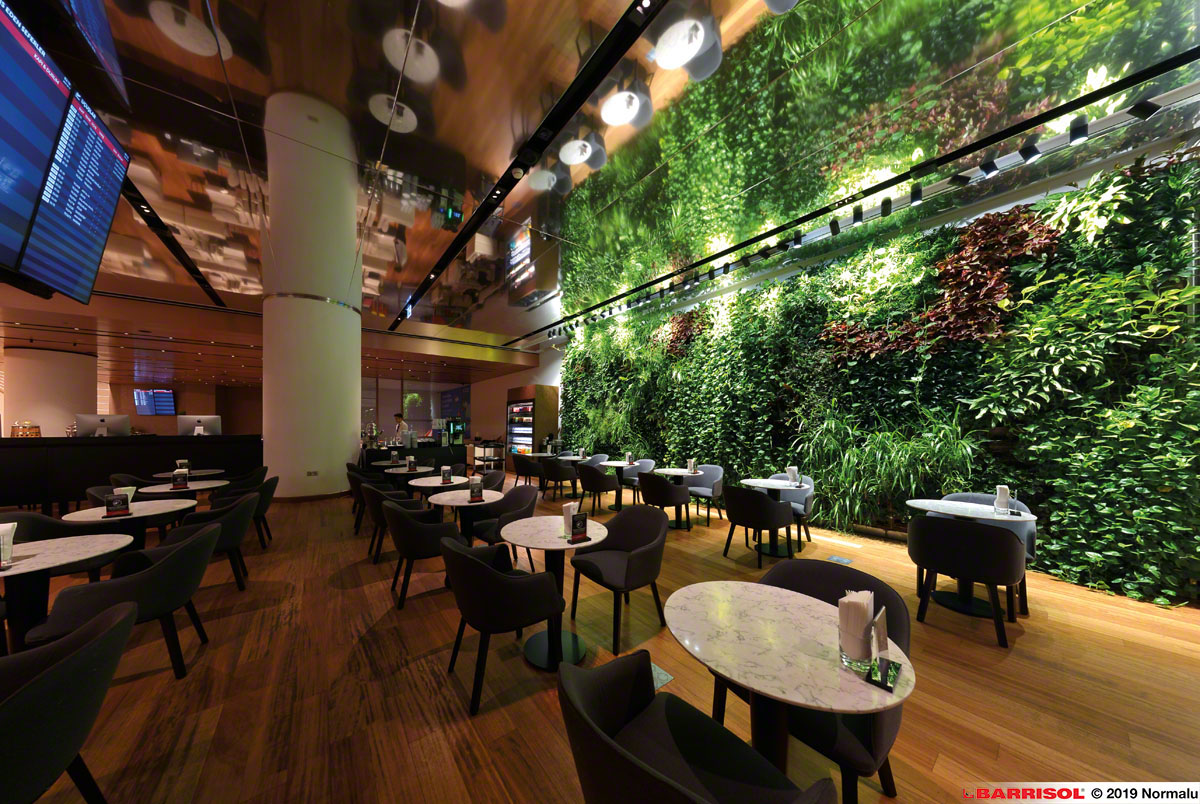Barrisol® copolymer (or polyvinyl chloride) is a material of the future, the result of avant-garde research.
- It is entirely recyclable and classified with the fire Euroclass B-s1, d0 / B-s2, d0 / suede finish B-s3, d0, (formerly M1).
- It meets the most stringent environmental and safety standards.



Barrisol® and the air quality
All Barrisol® products are A+ labeled (highest score)
In accordance with the legislation in force on the quality of the indoor air. Often the air is more polluted indoors than outdoors, Barrisol® guarantees healthier air without risk for your health.
Reducing air pollution in the environment
The company provides its employees with minibuses for carpooling in order to rationalize the use of private vehicles and especially to limit pollution.
Barrisol® reduces carbon emissions: 350,000 km/year saved thanks to Barrisol® shuttles, i.e. 3.5 million km over 10 years !
The Barrisol® plant has 6 shuttles for the transportation of personnel. They transport about 35 people per year... That makes about 350 000 km saved per year !
The recycling of Barrisol® sheets
Barrisol® sheets are 100% recyclable
All materials used in the production of the fabrics are recyclable or made from recycled materials.
![]()
This is an important environmental action when you consider that more than one million square meters of stretch ceiling are manufactured each year.
The fabrics are recycled after use for the manufacture of other materials.
The manufacturing process does not require the use of water, which saves this vital resource. The fabric is also non-flammable and non-toxic.
Take back old Barrisol® ceilings for recycling
Barrisol® takes back its old sheets from its installers to integrate them into its recycling process.
Since the beginning of this commitment, several hundred old ceilings of all colors and finishes have been taken back, some of which are over 30 years old !
Comparison between a Barrisol® stretch ceiling and other types of ceilings
A 100 m² area of Barrisol® require only 25kg of fixings (50kg total with profiles) and 4kg of packaging. Contrary to traditional ceilings representing a 100 m² area, you would require 12kg of fixings and supports per m² (1200kg) with 20 kg of packing on average.
These low weights and dimensions limit energy expenses for manufacturing, packaging and transport, thus reducing the impact on the environment.
| BARRISOL® | OTHER TYPES OF CEILINGS | |
| The weight | ||
| 500g/m² | 12Kg/m² | |
| for 10 000 m² | 5t | 120t |
| 115t less raw material to cover the same surface of 10 000 m² | ||
| The packaging | ||
| for 10 000 m² | 50Kg Reduced packaging Little waste |
More than 1000Kg Bulky packaging Large amount of waste |
| Difference: nearly one ton | ||
| The transport | ||
| Transport of the material | Reduced volume Lighter vehicle Less fuel consumed |
Large volume Large vehicles High fuel consumption |
| Difference: gain in volume and fuel | ||
| The assembly | ||
| for 10 000m² with 4 people | 50 days Reduced costs Premises can be reused quickly |
80 to 100 days Greedy in electricity Long occupancy of the premises |
| Difference: reduced energy requirement | ||
| The waste | ||
| Waste generated by the installation of 10,000m² |
+/- 0 | Approximately 10 t |
| Waste generated by the production of material |
+/- 0 | 10% |
| Difference: very little waste | ||
| The longevity | ||
| Durability | 20 years and older | 5 to 10 years |
| Maintenance | No regular renovation No subsequent investment No dirt No waste |
Regular renovation Subsequent costs More dirt More waste |
| Difference: no renovation | ||
| Recycling | ||
| Reusable material | 100% recyclable | Necessary sorting |
| Ecology | Preserves the environment Reusable as an energy source |
Non-reusable waste (rubble) |
| Difference : 100% recyclable | ||









